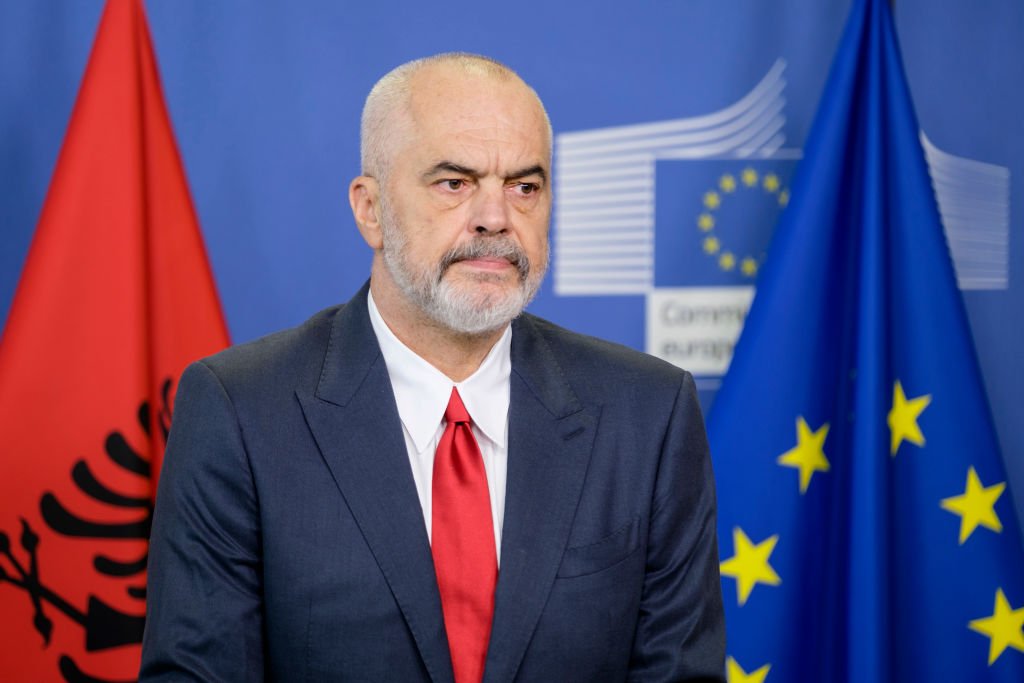
Introduction
In December 2023, MPs from the largest Albanian opposition party, the Albanian Democratic Party, announced that they would challenge the Albanian-Italian protocol on exterritorial migration, citing incompatibility with Albainia’s constitution and procedural shortcomings. They called on the Constitutional Court to declare the agreement incompatible with Albanian law and suspend its ratification. The main points of criticism include Albania's ability to fulfil the protocol, the details of the agreement and questions regarding the initiation of the agreement by Prime Minister Edi Rama.
In November 2023, BIRN Albania published a handbook on environmental advocacy, authored by ecology professor Mihallaq Qirjo. Funded by Sweden and the US Embassy in Tirana, the manual aims to empower civil society in Albania, promoting active participation, improved governance, and sustainable development through collaboration among civil society organisations, authorities, local communities, and the media.
Freedom of peaceful assembly
On 22nd January 2024, Albanian dairy farmers staged a protest against a sharp decline in milk prices, demanding fair rates and accusing processing factories of monopolistic practices. They threatened to take further action if their complaints were not addressed.
On 7th December 2023, Albanian opposition members disrupted a parliamentary debate with flares and noise to protest against the alleged authoritarianism of the ruling Socialist Party. Despite these interruptions, the session ended with the adoption of the annual budget and other bills thanks to the ruling party’s parliamentary majority. The opposition accused the Socialists of obstructing corruption investigations and misusing funds for public-private partnerships and called for the establishment of parliamentary committees to investigate these allegations. According to the Associated Press, the opposition’s obstruction of parliamentary work could hinder the reforms demanded by the EU as Albania tries to push ahead with accession negotiations.
On 18th December 2023, protesters in the Shushica Valley, Albania, demonstrated against an EUR 9.5 million water pipeline project that threatens to damage the Vjosa National Park. Local residents argue that the project, which was carried out without consultation, violates the legislation that designates the park as a protected area, threatens biodiversity and affects the economy of 30 villages.
On 6th December 2023, opposition-led protests with thousands of demonstrators unfolded during the EU-Western Balkans Summit in Tirana. The protests were led by ex-president and ex-prime minister Sali Berisha from the centre-right Albanian party and his counterpart Ilir Meta from the Freedom Party, also a former president and prime minister. The demonstrators accused Prime Minister Edi Rama of corruption, organised crime and autocratic governance. The protests aimed to highlight issues of media freedom, corruption and depopulation. Albania faces major challenges, including corruption and drug trafficking, which contribute to emigration. Whilst the protesters support EU integration, they reject the current regime.
Freedom of expression
On 13th December 2023, Albanian journalist Elton Qyno was questioned by the Special Prosecution Against Corruption and Organised Crime (SPAK), which caused concern among his colleagues in the media. SPAK was criticised for allegedly pressuring Qyno to disclose his sources. Police also searched Qyno’s home and workplace at Ora Television, and seized his computer. In an interview with the local media company Top Channel, Qyno criticised the arrest warrant as illegal and a violation of international conventions. Responding to questions from the Balkan Investigative Reporting Network (BIRN), the prosecutor who questioned Qyno said the journalist had been “invited” to provide information, and announced the investigation would “continue in other forms”. The incident has prompted strong reactions from journalists' safety advocates and the public.
The environmental activist Lavdosh Ferruni is facing criminal defamation charges initiated by the Italian company Renco. The company has rejected Ferruni’s articles about its alleged links to the Italian mafia and proven cases of bribery in Africa as unfounded accusations. If found guilty of defamation, Ferruni faces a fine of up to EUR 15,000 under the Albanian Criminal Code. The legal proceedings, which began in March 2023, have been delayed as hearings have been repeatedly postponed due to the absence of the company’s lawyers, most recently in December 2023. Ferruni claims the company wants to delay the end of the proceedings until February 2024 since it wants to finalise one of its projects by that date. The case is related to Ferruni and other activists’ opposition to thermal energy power plant ships docking in the bay of Vlora. Experts have criticised the ships from both an economic and environmental perspective, citing their harmful impact on the environment and their low efficiency.